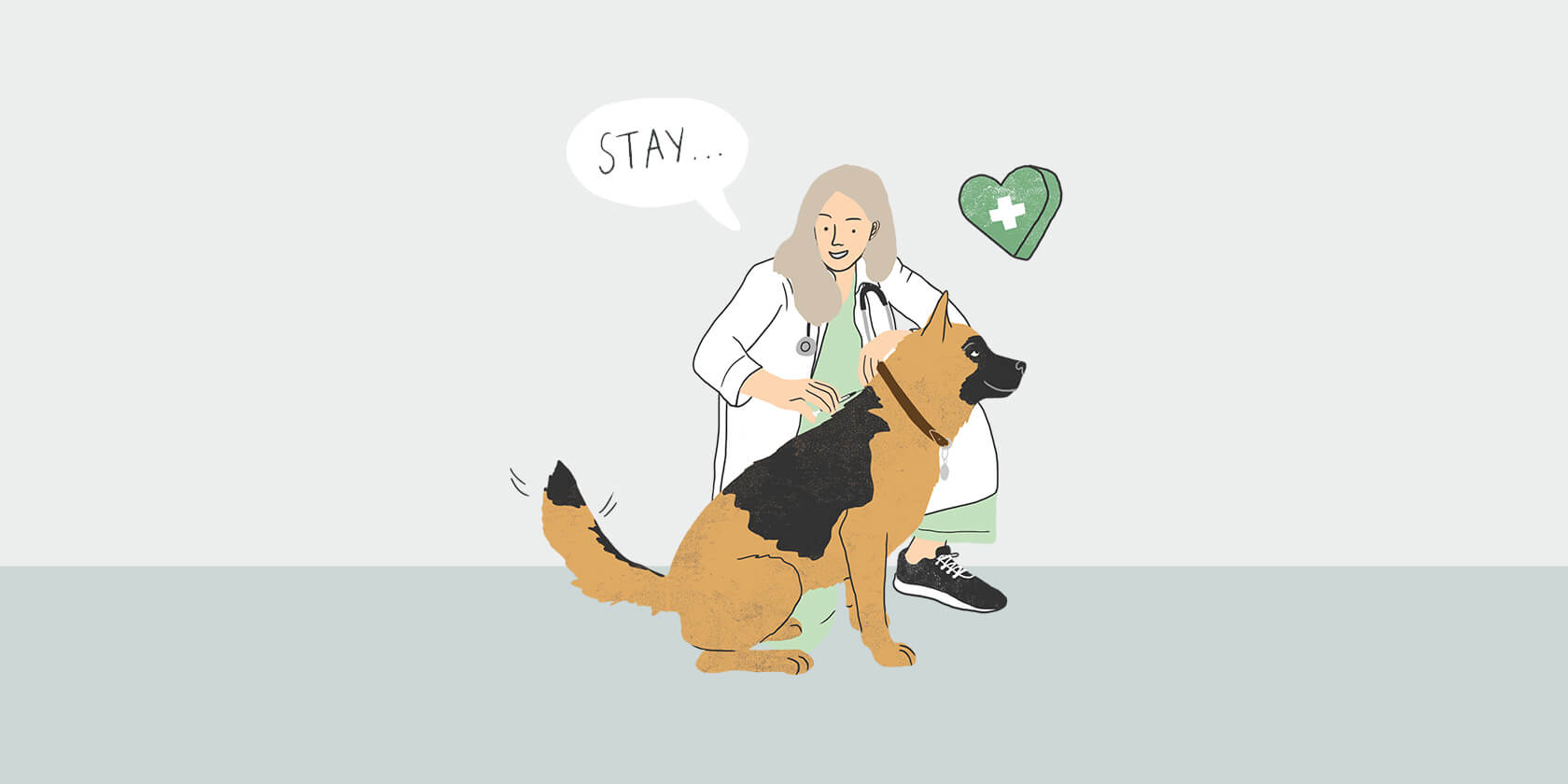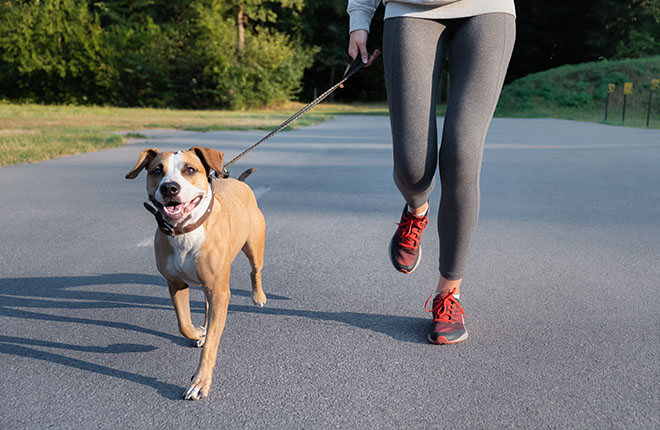Many owners question whether their dog needs all the recommended or required vaccines. After all, you keep your dog close, you don’t go hiking together in the deep woods, and your pup spends all their time inside your home and yard. Is your dog really still at risk for diseases they can be vaccinated against? The answer is yes.
How is Your Dog at Risk for Disease?
Our world is a busy place, and everyone is constantly on the go. Directly or indirectly, your dog is exposed to bacteria, viruses, and insects from many areas beyond the walls of their home. Consider these points:
- Dogs are social. It’s not just about your dog coming into direct contact with others. You also must consider shared animal spaces. Dog parks, doggy daycare, training classes, boarding facilities, your veterinarian’s clinic, and even the sidewalk in front of your home are all frequented by other animals (pets and wild creatures) who leave traces of their visit behind that could contain dangerous viruses and bacteria.
- Human houseguests can bring something unexpected. Even if a pet is strictly indoors, owners, visitors, and dogwalkers/pet sitters can bring diseases into the home on their shoes and clothes without knowing it. This is why even indoor-only dogs are at risk if they’re not vaccinated.
- We’re all living with fewer borders. With more than 2 million animals flying per year[1] and more than 65% of RVers bringing a pet on their excursions[2], local dogs are becoming international travelers. They’re being exposed to dangers and potentially bringing back viruses that may not exist in their home turf. Additionally, 20% of pet owners admit to sneaking their pets into hotel rooms[2], so you may be exposed to things you can bring home to your dog while you’re enjoying a pup-free vacation.
- Insects aren’t picky about who or what they bite. Insects like fleas and ticks can carry disease. In addition to the Lyme disease vaccine, talk to your veterinarian about flea, tick, and heartworm preventatives.
- If your pet is at risk, your family may be too. Zoonotic diseases can be transmitted from animals to people (like rabies and leptospirosis). Even something as simple as not using flea and tick prevention on your dog can lead to ticks getting in the home.
What Do Canine Vaccines Protect Against?
Thankfully, there are several safe and effective vaccines available for our dogs today. Some are specific to a single virus or disease, while others cover multiple issues, including:
- Leptospirosis
- Bordetella
- Parvovirus
- Canine distemper
- Canine parainfluenza
- Canine adenovirus

Are Vaccines the Best Way to Keep Your Dog Safe?
Vaccines have done such an amazing job of lessening the risks of disease. It can often be hard to remember how horrible some diseases were before vaccines existed. Within the last century, the widespread use of vaccinations has prevented disease and millions of animal deaths.
Protecting your dog with vaccines improves their quality of life — you’re avoiding costly care by treating illnesses that could have been prevented and lessening the risk of losing your pet to a preventable fatal illness. You’re also helping to protect yourself, your family, and your friends from zoonotic diseases. Lastly, let’s not forgot there are local and state laws that require certain vaccines.
Think of your dog’s vaccines as you would your own. The World Health Organization states that hesitancy to vaccinate is one of the 10 biggest threats to global health[3]. This is supported by the fact that there has been a 30% increase in the number of worldwide measles cases and a revival of the disease in places that had almost eliminated it[4]. This is an indicator of what can happen to the animal population when vaccinations are not maintained.
It is important to recognize the importance of vaccinating your dog, not only for their protection but your own. With this mobile world we live in, nothing is isolated to a single location anymore. We’re all exposed to different and sometimes unexpected dangers. But we can easily protect our furry family members by talking with our veterinarians about vaccines and preventatives and keeping all vaccines current. Remember, an ounce of prevention is worth a pound of cure.
ZPC-01260R1
- Plane Talk: Traveling with Animals. U.S. Department of Transportation. https://www.transportation.gov/airconsumer/plane-talk-traveling-animals. Accessed April 12, 2021.
- Pandemic Travel: 2020 U.S. Traveler Deep Dive. https://research.skift.com/report/pandemic-travel-2020-u-s-traveler-deep-dive/. Accessed April 12, 2021.
- Ten threats to global health in 2019. World Health Organization. https://www.who.int/news-room/spotlight/ten-threats-to-global-health-in-2019. Accessed April 26, 2020.
- Why Vaccinate Your Pets. Understanding Animal Research. https://www.understandinganimalresearch.org.uk/news/animal-welfare-alternatives/why-vaccinate-your-pets/. Accessed April 12, 2021.



